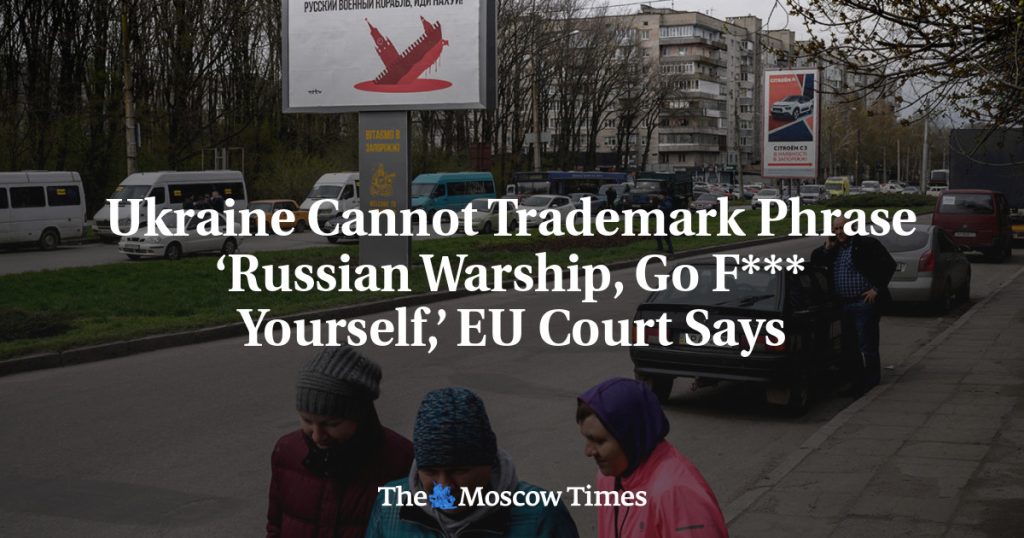An EU court has ruled that Ukraine cannot trademark the phrase "Russian warship, go f*** yourself." This decision comes after a two-year dispute over intellectual property rights to the viral slogan. The Ukrainian border guard service filed a trademark application for the phrase in March 2022, following its use by a Ukrainian soldier during a radio exchange with a Russian warship on the first day of Moscow’s full-scale invasion. Ukraine argued that it should have sole authorship of the phrase to prevent others from profiting from commercial products featuring it.
The European Intellectual Property Office (EUIPO) in Spain had previously rejected Ukraine’s trademark application, citing the use of vulgar language with an insulting sexual connotation and the potential for immoral war profiteering. The EU’s General Court in Luxembourg upheld this rejection, stating that the phrase is a political slogan rather than a unique expression of imminent danger. The slogan originated on Feb. 24, 2022, during Russia’s capture of Snake Island, where a Ukrainian border guard used it. The soldiers stationed on the island were taken prisoner but later exchanged in a prisoner swap, with Ukrainian forces reclaiming the island in June 2022.
In light of the phrase’s widespread use as a symbol of resistance against invading Russian forces, the EU court maintained that it is a political slogan rather than an individual expression of imminent danger. This decision highlights the complex nature of intellectual property rights in the context of politically charged phrases. The ruling also brings attention to the broader implications of trademarking such slogans, especially when they are widely shared and have significant political and cultural significance. The rejection of Ukraine’s trademark application underscores the challenges of balancing commercial interests with the political and social contexts in which certain phrases gain prominence.
The controversy surrounding the trademarking of the phrase extends beyond legal considerations to encompass broader debates about freedom of speech, political expression, and the commercialization of resistance symbols. The rejection of Ukraine’s trademark application for the slogan reflects a balancing act between protecting intellectual property and preserving the communal and political meanings attached to certain phrases. The court’s ruling underscores the need for sensitivity and nuance when addressing the trademarking of slogans that have become emblematic of larger social and political movements. Ultimately, the decision highlights the complex interplay between commercial interests, political expression, and cultural symbolism in the realm of intellectual property rights.


